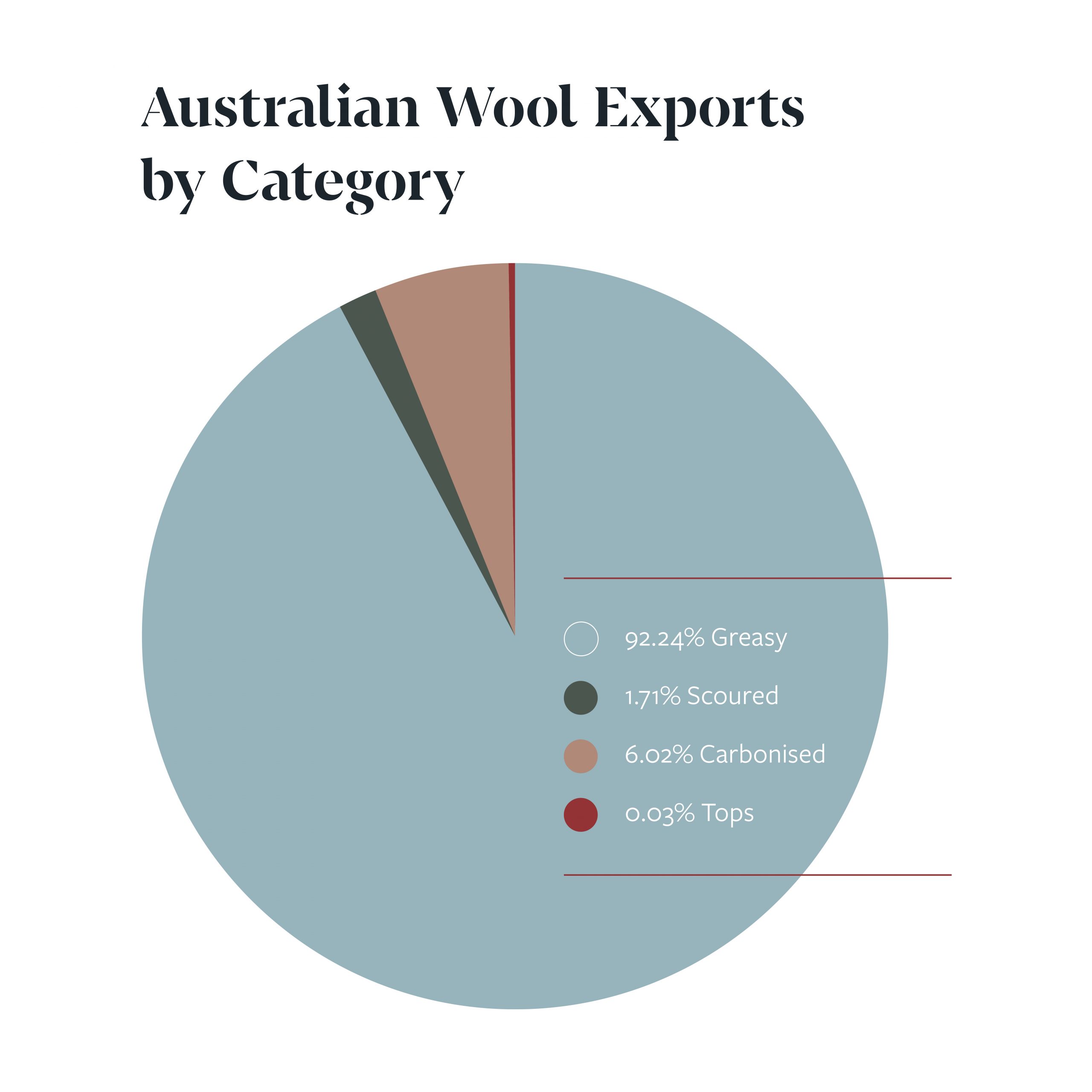close
Australian wool is the cornerstone of the global wool textile trade, reflecting our status as the largest exporter of wool in the world and our supply of 89% of the world’s apparel wool.
Australian wool is converted into a wide range of apparel and interior textile products, from the finest suits, sportswear and babywear, through to socks, shoes, and luxurious home textiles.
These products are primarily consumed in Europe, Asia and North America, but are a part of daily life for consumers all across the globe.
The biodegradability of wool combined with properties of moisture and odour management and thermal regulation place it as a naturally sourced high-performance fibre.
Fast Facts
Australian wool is exported to more than 20 countries around the world.
Four countries (China, India, Italy and Czechia) account for 95% of all Australian wool exports.
Around US$80 billion per annum is spent on wool apparel at retail, with expenditure dominated by the US, Japan, China, Germany, UK and Italy.

Australian wool exports
95.6% of Australia’s wool exports are in greasy form, with the remainder exported in scoured or carbonised forms.
Four countries (China, India, Italy and Czechia) account for 95% of all Australian wool exports. This wool is processed into intermediate products which feed the global textile industries.
The Australian Bureau of Agricultural and Resource Economics and Science publishes extensive information on Australian wool exports on an annual basis.
Sourcing Australian Wool
The Woolmark company works directly with hundreds of supply chain partners to provide sourcing support and supply chain connections to the textile industry. Details of spinners, knitters and weavers able to supply Australian wool can be found in the Woolmark sourcing guides.
Free Trade Agreements
Australia has comprehensive trade agreements with many countries around the world, including Free Trade Agreements (FTAs). As a result, Australian raw wool and many forms of wool products are able to be exported tariff-free to China, Hong Kong, Japan, Korea, Thailand and the US, among others.
The Australian Commonwealth Department of Foreign Affairs and Trade (DFAT) has a web-accessible Free Trade Agreement Portal.
Interested in doing business with Australia?
The Australian Government Trade and Investment Commission (Austrade) also provides information about FTAs. Austrade has a wide range of resources and an extensive staff network, both within Australia and overseas to establish, maintain and improve trading relationships.
Growing demand through innovation
Through investment of grower levies Australia is investing in new consumer product innovations to increase demand for wool, including:
- Merino knit athleisure footwear – such as the Athletic Propulsion Labs running shoes, which feature an 80% Australian Merino wool upper.
- Use of Superfine Merino base layer knitwear as a valuable adjunct therapy for sufferers of atopic dermatitis, across a wide age range from infants to adults.
- Superfine Merino sleepwear, which has been shown in a clinical trial to improve sleep quality, by helping to regulate body temperature.
- Fine Merino knits as fire-resistant base layer undergarments for military, fire service and police first responders.
Read more about research and innovation relating to wool and skin health on the Australian Wool Innovation website.
